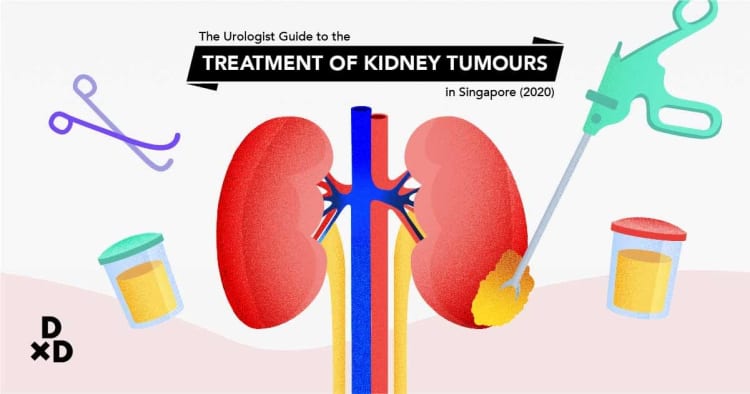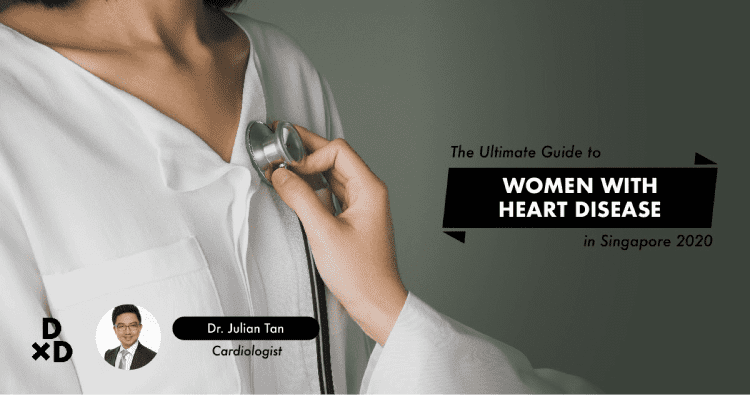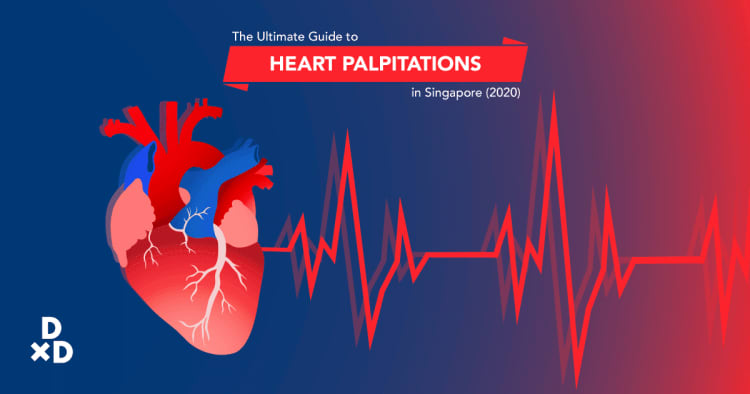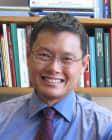GP, or general practitioner, is a term that's truly withstood the test of time in Singapore. All of you will see a GP at least once in your life, and some of you, perhaps rather more frequently for you know what reason.
There's a whole lot more to your friendly neighbourhood GP than meets the eye however. Here are 17 popular myths about GPs in Singapore to tickle your mind.
1. GPs in Singapore only dispense MCs and cough/cold medications
Lets get this out the way with - we don't only deal in coughs, colds, and MCs.
GPs are often your first point of contact when you are sick. We have to manage every single symptom and medical condition imaginable, without the luxury of investigative tools afforded by a hospital. All this, within a short span of 5 - 10 minutes.
In Singapore, GP clinics are able to remove your lumps and bumps, provide counselling, and order in whatever exotic medications you may need. Some practices even offer:
- Flexible nasoendoscopy
- Ear syringing
- Psychotherapy
- STD screening
- Ultrasound scanning
- Cardiac testing
- Day surgeries, and the list goes on and on…..
2. GPs are all the same

We are really the most heterogeneous bunch of people ever, and I don't just mean personality-wise. The types of clinic services offered, and our individual way of working differ greatly from each another.
I can assure you that you'll never walk into 2 GP clinics in Singapore which are run exactly the same way. This holds true, even amongst larger medical groups.
3. Your GP is very free and shaking his legs in clinic most of the day
I know that the wait to see us can sometimes feel like an eternity. However, to banish that image of your GP shaking his legs while you're stuck outside with a horde of sick patients, here's my average Friday schedule:
- 8 am - 1 pm: Morning clinic session. Patients are booked back to back until lunch time.
- 1 pm - 2 pm: Lunch. I rush through lunch while talking to my staff about the day's work, and our future directions.
- 2 pm - 6 pm: Nursing home visit. My afternoon is spent seeing elderly patients with a list of medical problems longer than the taxi queue when the MRT breaks down. Sometimes, I also have to provide training to the nursing home's staff.
- 6 pm - 8 pm: Evening clinic session. If I'm lucky, I might get a quick dinner before I rush back to start my next clinic session.
- 8 pm - 10 pm: Home visit for home care patients. Some patients cannot come to me, so I go them. These may be dying patients who prefer to pass away in the familiarity and comfort of their own homes.
- 1 am: End. It's usually about 1 am by the time I reach home. I spend some time reading (about patient problems that I saw during the day) or writing (like this article).
4. It's always better to see a specialist than a GP when it comes to your health
Studies have demonstrated that an increased number of primary care doctors result in better health outcomes overall, and at lower costs. On the other hand, an increased number of specialists is NOT associated with a lower overall mortality.
The data also showed that increasing just ONE primary care physician per 10,000 population decreases mortality by 5.3%, and avoids 127,617 deaths per year.
5. Being a GP is a boring and stable job

Yes, I get this quite a lot. The truth is, things are never dull around here, because no 2 days are ever the same. We literally have no clue what could walk through our front door next. It could be anything from:
- a pregnant lady with severe nausea and dehydration
- a teenager with heart rhythm abnormalities
- a depressed housewife
- a toddler with a high fever
- a medical emergency, like a heart attack
Our job is also fraught with risks, like you'd expect when it comes to dealing with something as unpredictable as the human body and mind. Who knows when the next feverish child I tell to go home will turn out to have Kawasaki's Disease?
6. Your GP cannot see your child
The average GP patient pool encompasses patients of all ages, ranging from the very young, to the very old!
50% of patients in my clinic are below the age of 16. Your GP can usually manage 99% of problems your child may be having.
7. Your GP can't give your child vaccinations

Just because it's free in the polyclinic, doesn't mean that your downstairs GP cannot give vaccinations. A lot of patients choose to be vaccinated at the GPs for various reasons, including convenience and familiarity.
8. GPs in Singapore are "failed doctors" who couldn't become specialists
It's a common misconception in Singapore that GPs are not "good enough" to become a specialist. This couldn't be further from the truth.
For most, choosing to become a GP is an active calling, borne out of a desire to work within the community. GP exams encompass the breadth of general medicine, surgery, obstetrics and gynaecology, psychiatry, paediatrics, and public health, and can have a failure rate of up to 40% - hardly a piece of cake!
Many GPs also pass through the same rigours of training as a specialist, and are expert doctors in their own rights, especially when it comes to:
- Chronic illness
- Undifferentiated illness
- Care coordination between different health providers
- Preventive medicine
- Complex patients with multiple comorbidities
- Managing finite health resources
In fact, many countries in the world such as Australia, the USA, and Malaysia all recognise trained GPs as specialists.
9. GPs know nothing, like Jon Snow
Singaporeans sometimes fault GPs for not knowing everything, seemingly unable to appreciate the enormous breadth of knowledge that GPs are required to have.
If you've read The Checklist Manifesto by Atul Gawande, you'll realize that doctors nowadays grapple with 13,000 diagnoses, and an arsenal of 6,000 drugs. So yes, your GP does know more than a thing or two, unlike Jon Snow.
10. GPs are doctors who quit the hospital because they want to chillax
This is a commonly perpetuated myth in Singapore - if you’re intelligent, hardworking and successful, you become a hospital specialist. If you can’t get into anything, or if you want the easy route out, you become a GP.
In reality, most GPs in Singapore do really, really long hours, and I certainly don't see my GP colleagues "chilling" any more than my hospital colleagues. It's also commonplace for GPs to run night and weekend clinics.
11. GPs in Singapore are very expensive/earn a lot of money from you

Next time, try bringing your domestic helper to a polyclinic, and check the bill when you walk out. You'll realise that the unsubsidised rate of the polyclinic is actually higher than the usual GP rates.
How can this be so? The answer is that many GPs actually offer lower rates to make healthcare more affordable, especially when it comes to clinics in the older estates.
12. Your GP has no clue about handling specialised problems
Ok, I get it. It's in the name, right? G for GENERAL. Contrary to popular belief however, we do frequently have to manage complex medical problems in the community.
If we didn't have any knowledge at all of all these conditions, how else in the world will we know which specialist to refer you to in the first place?
13. GPs like to any old how send you to the A & E, or refer you to see a specialist
GPs and doctors in general are risk-averse. We want the best for our patients, which means that we tend to err on the side of caution and take a safety-first approach.
Anytime our "spider sense" goes off, we will advise for further testing or checking by our colleagues. Trust me, it's for your own benefit. Conversely, if we advise you NOT to go for that specialist visit or scan, it's for good reason too.
14. GPs are rubbish at looking after complex patients with multiple problems

Medicine is currently at an information overload stage, and family physicians are one of the best doctors to deal with this kind of complexity.
In the absence of a GP to keep tabs of everything that's going on, its easy for a patient with multiple medical problems and/or medications to fall between the cracks. This can manifest in the form of missed medications, and lapses in picking up health issues.
15. Your GP has outdated knowledge, and doesn't bother learning new things
GPs are required to fulfil CME training points (continuing medical education) to maintain our licence to practise. CME typically consists of educational activities and lectures that ensure we practice up-to-date medicine.
Most of us will clock more than the required hours anyway, because we want to continue learning to provide our patients with the best quality care.
16. GPs cannot do surgeries
Minor surgeries can often be performed by GPs at a fraction of the cost and hassle of having the same procedure in a hospital.
In less than an hour, you'll be able to head home to rest and recuperate, without all the encumbrances of checking into and out of hospital.
17. Your GP is rolling in money
Allow me to dispel this myth by sharing my fixed monthly costs of running a GP practise in Singapore:
- Rental: $1x,000
- Drugs ordering: $10 - $20,000
- Nurses salary: $1x,000
This is on top of my medical education loan, clinic licensing fees, and medical insurance, just in case the next patient sues me for missing his child's Kawasaki's disease. All this, before I've made a single cent!
If I quit medicine today and went into business or even coding, I'd probably earn more than running my GP practise. But I choose to do what I do, because I'm passionate about my job.
Perhaps you might now see GPs in a different light. I'm most happy myself when my patients see the "big picture" - that life isn't just about work, and health is really the top priority. Conversely, I'm most saddened when somebody suffers from an illness that could have been easily prevented, leaving the burden of care to his/her family.
Making sure you and your family share the same designated and trusted GP is probably the single best step to achieving good health for you and your loved ones :-)
Dr Paul Ang is a family physician at Zenith Medical Clinic. He's keen to improve the way primary care (or GP services) is delivered. He's also involved in gpwiki.com, a social project where he shares his knowledge and experience with young GPs. In his free time, Dr Paul can be spotted cycling around the Punggol and Sengkang areas with his two young boys and spouse. His favourite cycling spots include Coney Island, Punggol Waterway Park and Sengkang Riverside Park.











